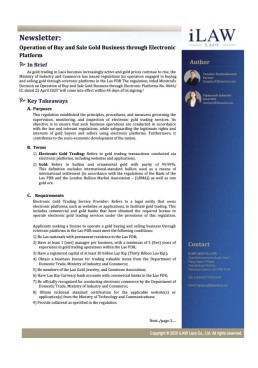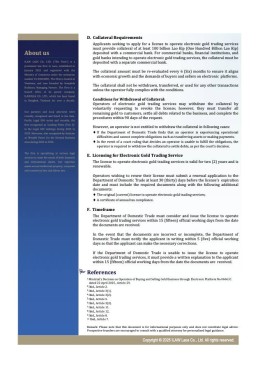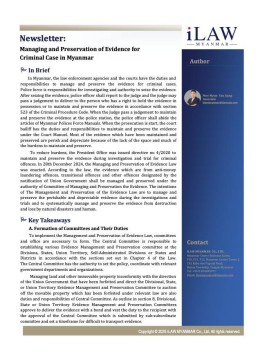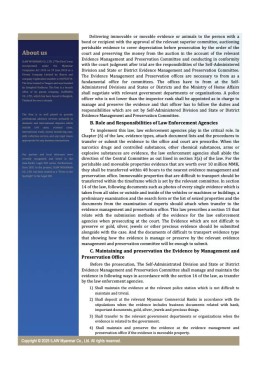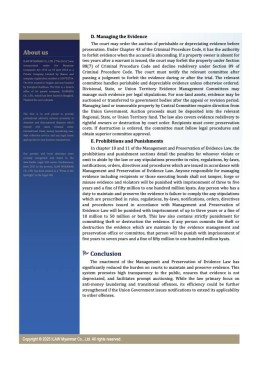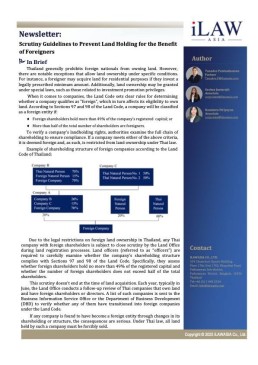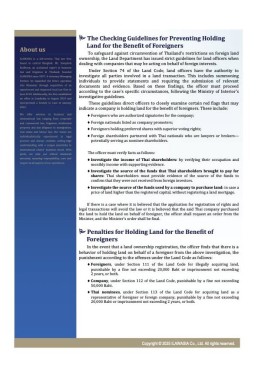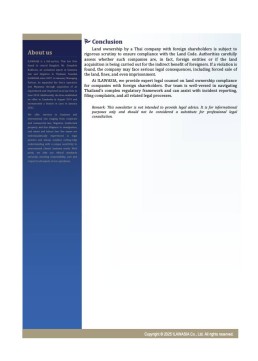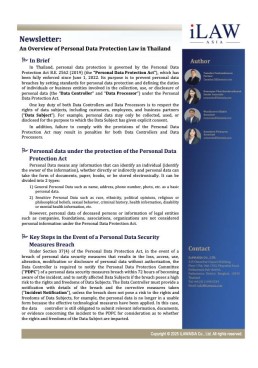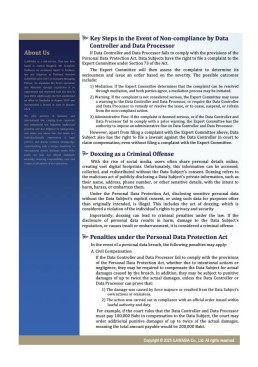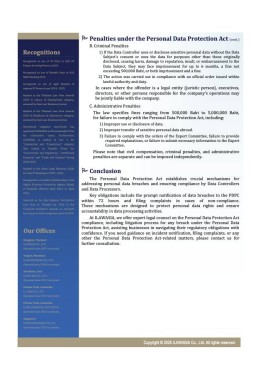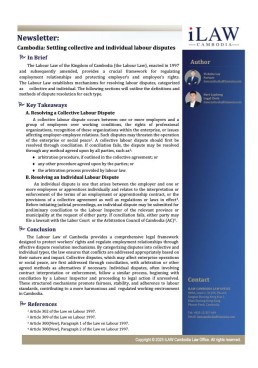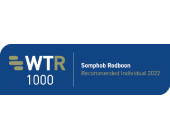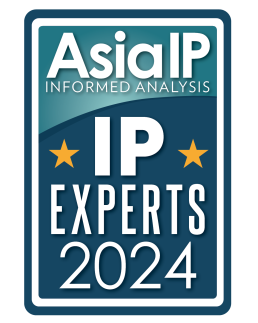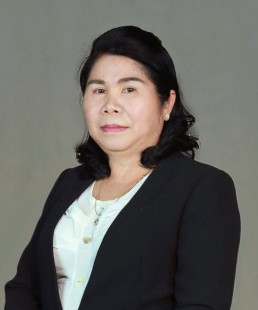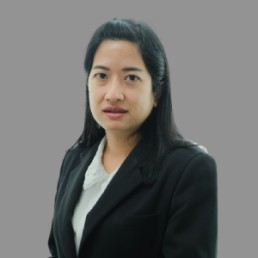Myanmar Opens New Export Opportunities for Foreign Companies
A Game-Changer for International Businesses
In an exciting development for foreign investors, Myanmar’s Ministry of Commerce has issued Notification No. 93/2024 under the Export and Import Law, granting foreign companies the right to export a wide range of domestically produced goods. This move marks a significant step in opening Myanmar’s economy to international trade and enhancing global business opportunities.
Foreign companies registered under Myanmar Companies Law can now export the following products, whether self-produced or sourced from local manufacturers:
-
- Processed meat, fish, and fishery products
- Processed agricultural goods
- Various types of pulp and paper
- Seeds
- Refined minerals
- Semi-finished or finished horticultural products (fruits and flowers)
- Wood-based furniture
- Environmental goods related to sustainability and protection
Unlike previous regulations, this notification does not impose a minimum capital requirement for exporting these products. However, for rice and broken rice exports, foreign entities must meet a USD 3 million capital requirement, secure adequate warehouse facilities, and hold a valid Myanmar Rice Federation membership certificate.
Foreign companies intending to export the above-mentioned local products are required to obtain approval and comply with the procedures set by the relevant authorities before obtaining the Exporter/Importer Registration Certificate and Export License from the Trade Department.
The purpose of this Notification is to enhance production capacity, gain access to foreign markets, and enable producers to obtain higher selling prices by expanding exports of high-quality local products to foreign markets.
How ILAWASIA Can Help You Succeed
At ILAWASIA, we specialize in guiding foreign investors through Myanmar’s evolving legal landscape. Our expert legal team provides comprehensive support in corporate registration, export compliance, and licensing to ensure your business takes full advantage of these new export opportunities. If you’re looking to expand your business and navigate Myanmar’s trade regulations smoothly, contact ILAWASIA today. Let’s turn this regulatory change into a strategic advantage for your company.
Author
-
- Tanadee Pantumkomon, Partner.
- Htar Su May, Senior Associate.
They can be reach out at ilawmyanmar@ilawasia.com
Director’s Criminal Liabilities under Thai Laws
The law stipulates that a juristic person must have a legal representative who acts on behalf of a juristic person. Additionally, the law has established provisions regarding the liabilities of such representatives, which can be classified as follows:
-
Director’s Liability
- ➢ Limited Companies: According to the Civil and Commercial Code, Section 1167, the relationship between directors, the juristic person, and third parties shall be considered based on the principles of liability of an agent to third parties. The juristic person is bound to third parties in all transactions conducted by the directors or representatives of the directors within the scope of their authority. However, all directors must share responsibility for overseeing the juristic person’s affairs in general matters, according to the Civil and Commercial Code, Section 1168.
-
Therefore, any actions taken by directors of limited companies without authority or beyond their scope of authority are not considered binding the juristic person under the law. As a result, the directors shall be personally liable for such transactions.
- ➢ Public Companies: According to the Public Limited Companies Act, Section 66, Directors are required to act in good faith and in the best interests of the juristic person and its shareholders, exercise due care and diligence in their duties and must be jointly liable with the juristic person to third parties if any action of the juristic person causes damage to another person and the director is aware of and consents to such action of the juristic person, according to the Public Companies Act, Section 222.
-
Criminal Liability
-
According to Thai laws, if a juristic person does anything that is a legal violation, most of the laws stipulate that the directors must be jointly liable together with the company.
For example:
- ➢ The Liability under the Act on Offenses Concerning Registered Partnerships, Limited Partnerships, Limited Companies, Associations and Foundations B.E. 2449 in the case of breach of duty as a director.
- ➢ Liability under the Building Control Act B.E. 2522 in the case of construction that is not in accordance with the plan or construction without permission, according to Section 72, it is stipulated that “In the event that a juristic person commits an offence under this Act, all directors or managers of that juristic person shall be deemed to have committed the offence with that juristic person, unless it can be proven that the action of that juristic person was committed without their knowledge or consent.”
- ➢ Liability under the Act on Offenses Arising from the Use of Checks B.E. 2534, in the case of ordering a check to pay a debt and the bank refuses to pay the money on the check, in the event that a director signs and stamps a check in the name of the company, such director cannot claim that he had no intention of issuing such a check.
-
-
In addition, in the Thai court procedure, if the issue in the court process involves a law that specifies the liability of the director, who must be jointly liable with the juristic person, the prosecutor or authorized officer will proceed with the prosecution of the director together with the juristic person.
Guidelines for Practice in Cases where Directors would not be Jointly Liable with the Juristic Person
-
- ➢ Guidelines in the manual of directors of listed companies on the roles, duties and responsibilities of “directors” and “boards of directors”.
- · If the director did not participate in the action or the action was taken without relying on the board’s resolution (e.g. the executive acted outside the scope of the board’s authority).
- · If the director objected at the meeting, recorded it in the minutes, or wrote to the chairman after the meeting stating his disagreement with any resolution.
- · If it is a matter of the juristic person not preparing accounts, registers or documents as required by law, but the director can show that he acted appropriately to avoid violating the law.
- ➢ Guidelines for Consideration of Cases
- · Supreme Court Decision No. 173-228/2010
“The first defendant is a juristic person. The second defendant is a director with the authority to act on behalf of the first defendant, who is the principal. Therefore, the second defendant must be bound to the third party for the second defendant’s actions that were done within the first defendant’s objectives. The second defendant is not personally liable. The Central Labour Court’s ruling that the second defendant, together with the first defendant, should pay compensation to the plaintiff as claimed, without stating that the second defendant is not personally liable, is incorrect. The Supreme Court has amended the ruling to say that Sergeant Major No. 2 is not personally liable. Apart from the amendment, it should be in accordance with the Central Labour Court’s ruling.” - · Supreme Court Judgment No. 3176/1989
“The third defendant is a director of the company. He signed and affixed the company’s seal on the check made out to the plaintiff who deposited the money. Although the company’s regulations require two directors to jointly sign and affix the seal, the fact that the company used the plaintiff’s deposit in its business by lending it out and receiving excess interest from the borrower for the company’s benefit is considered an agreement and binding on the company. The third defendant is therefore not personally liable to the plaintiff who holds the check.”
- · Supreme Court Decision No. 173-228/2010
- ➢ Guidelines in the manual of directors of listed companies on the roles, duties and responsibilities of “directors” and “boards of directors”.
Conclusion
In Thailand, directors of juristic persons, particularly limited companies and public companies, are subject to both civil and criminal liability for actions performed within their authority. Directors are obligated to act in good faith and are jointly liable with the company for any damages resulting from their consent to unlawful conduct. However, directors can avoid personal liability if they do not participate in the wrongdoing, are not formally objected to during a meeting, or take appropriate measures to ensure compliance with the law. Legal guidelines emphasize the difference between personal and corporate liability, and directors are protected under certain conditions, thus emphasizing the importance of understanding their legal responsibilities.
At ILAWASIA CO., LTD., we have over 17 years of expertise in civil and commercial law, corporate governance, and legal risk management across Thailand, Myanmar, Cambodia, and Laos. With our extensive experience, we are fully prepared to support your business in achieving its goals while minimizing legal risks relating to director criminal liabilities and ensuring regulatory compliance. Our commitment is to your success.
Author
Tanadee Pantumkomon, Partner
Kamintra Piriyayon, Associate
They can be reach out at corporate@ilawasia.com
Establishing an NGO in Lao PDR
IN BRIEF
Recently, on 27th February 2025, we observed World NGO Day. On this occasion, ILAW Laos reaffirms its strong support for feminist rights and its commitment to upholding the principles of equality. We firmly believe that NGOs not only catalyze positive change within Laos but also make a meaningful impact on a global scale.
Therefore, this newsletter offers a comprehensive examination of the statutory framework, regulatory mandates, and procedural requirements essential for the successful formation and operation of an international non-governmental organization (INGO) in Laos.
The following analysis outlines the key legal obligations, registration processes, and strategic considerations necessary for navigating the complexities of establishing an NGO in the Lao People’s Democratic Republic.
KEY TAKEAWAYS
- Legal And Procedural Requirements
- A. Application for an Operation Permit (OP)
- An NGO seeking to operate in Lao PDR must first obtain an Operation Permit (OP) from the Ministry of Foreign Affairs1.
-
- To qualify, the organization must satisfy the following criteria:
- 1) It must be a legally registered entity in its country of origin, with a legal status in accordance with applicable foreign laws.
- 2) It must be a non-profit entity operating internationally.
- 3) It must have a clear constitution or set of internal regulations governing its operations.
- 4) It must demonstrate financial stability and transparency, ensuring that its funds originate from legal sources.
1Article 5 of No. 5.5 Prime Minister’s Decree on International Non-Government Organization No.013pm dated 8 January 2010; and No. 4 No 4.1. Instructions on the Implementation of Prime Minister’s Decree on International Non-Government Organization No. 001064, dated 17 February 2015.
-
- 5) Its mission and objectives must align with the development and humanitarian priorities of Lao PDR2.
- Once an OP is granted, the NGO is formally authorized to commence preparatory activities in Lao PDR, including the engagement of staff and negotiation of project agreements.
-
B. Work Permits and Business Visas for Foreign Employees
Upon receiving an OP, such NGO must secure appropriate work permits and business visas (Visa E-B2) for its foreign employees3.
-
The key requirement are as follows:
- 1) Foreign employees must obtain a work permit to legally work in Lao PDR in order to prepare documents and a Memorandum of Understanding (MOU) with the relevant Ministry and sectors that will be partners in the implementation of the project.
- 2) Business visas (Visa E-B2)4 are valid for 90 days and are renewable5. These visas can be obtained at Lao embassies, consulates, or international entry checkpoints.
- The work permit application must be submitted before employees can engage in project activities or office establishment procedures.
-
C. Project Approval Process6
2Article 6 of Prime Minister’s Decree on International Non-Government Organization No.013pm, dated 8 January 2010.
3No. 4 of No 4.2. Instructions on the Implementation of Prime Minister’s Decree on International Non-Government Organization No. 001064. Dated 17 February 2015; and Article 20 (No.9) – Law on Entry-Exit and Management of Foreigners in Lao PDR No.59.NA Dated 26 December 2014.
4No. 15 of Instructions on The Implementation of Prime Minister’s Decree on International Non-Government Organization No. 001064, dated 17 February 2015; and Article 20 (No.9) – Law on Entry-Exit and Management of Foreigners in Lao PDR No.59.NA Dated 26 December 2014.
5No. 4 of No 4.3. Instructions on The Implementation of Prime Minister’s Decree on International Non-Government Organization No. 001064, dated 17 February 2015.
6No. 4 of No 4.4. Instructions on The Implementation of Prime Minister’s Decree on International Non-Government Organization No. 001064, dated 17 February 2015; and Article 5 of No. 5.2. Prime Minister’s Decree on International Non-Government Organization No.013pm, dated 8 January 2010.
Before commencing any project, an NGO must obtain formal approval through the Memorandum of Understanding (MOU) process.
-
-
- This requires:
- 1) Drafting and negotiating the MOU with the relevant Lao ministry that will act as the counterpart for project implementation7.
- 2) Ensuring the project meets the following conditions:
-
- · It aligns with the Lao government’s approved development priorities.
- · It has clear objectives, activities, and a well-defined budget.
- · It explicitly defines the roles and responsibilities of all involved parties, including government agencies and the NGO.
- · A majority of the project’s budget must be allocated toward direct project activities rather than administrative costs.
- · A Project Steering Committee must be established, comprising representatives from relevant Lao government bodies and the NGO. The committee is responsible for approving work plans, budgets, and reviewing project implementation reports8.
-
-
-
-
- Upon obtaining approval, an MOU signing ceremony must be held within 30 days. No project activities may commence prior to the formal execution of the MOU. The Lao government requires at least 60 days for MOU consideration before approval.
-
7No. 6 of No 6.3. Instructions on The Implementation of Prime Minister’s Decree on International Non-Government Organization No. 001064, dated 17 February 2015.
8Article 7 of Prime Minister’s Decree on International Non-Government Organization No.013pm, dated 8 January 2010.
9No. 4.4.2 and No. 4.5 Instructions on The Implementation of Prime Minister’s Decree on International Non-Government Organization No. 001064, dated 17 February 2015.
-
- D. Establishment of a Project Office in Lao PDR10
- An NGO wishing to establish a Project Office in Lao PDR must obtain an Operation Office Permit.
-
- The office must meet the following requirements:
- 1) The NGO must have an approved project in Lao PDR.
- 2) The office premises must have a valid lease agreement, officially recognized by relevant Lao authorities.
- 3) The office must remain operational only for the duration of the approved project and must be closed within 30 days after project completion11.
- E. Ongoing Compliance and Reporting Obligations
- NGOs operating in Lao PDR are subject to continuous compliance obligations, including:
- 1) Submit a report of activities to the relevant sectors on the Lao side on a regular basis, or at least once a year12.
- 2) Disclosure of financial statements, including project implementation reports and financial reports submitted to donors13.
- 3) Mid-term and end-term project evaluations, conducted jointly with Lao authorities14.
10Article 5 of No. 5.3. Prime Minister’s Decree on International Non-Government Organization No.013pm, dated 8 January 2010.
11Article 8 of Prime Minister’s Decree on International Non-Government Organization No.013pm, dated 8 January 2010.
12Article 18 of No. 18.4. Prime Minister’s Decree on International Non-Government Organization No.013pm, dated 8 January 2010.
13Article 18 of No. 18.5. Prime Minister’s Decree on International Non-Government Organization No.013pm, dated 8 January 2010.
14Article 18 of No. 18.6. – Prime Minister’s Decree on International Non-Government Organization No.013pm, dated 8 January 2010.
- 4) Submission of final project reports within 30 days after project completion, including a formal handover to relevant Lao government agencies15 and the Ministry of Foreign Affairs.
- 5) Tax compliance, including filing Personal Income Tax (PIT) for employees by the 20th of the following month16.
- F. Renewal and Validity Period
- The Operation Permit and project approval are valid for one year and are renewable upon meeting compliance requirements. Failure to renew or comply with reporting obligations may result in permit revocation or administrative penalties.
CONCLUSION AND LEGAL SUPPORT
Establishing and operating an NGO in Lao PDR requires strict adherence to legal and regulatory frameworks, which include obtaining an Operation Permit, securing project approval through an MOU, acquiring work permits for foreign employees, and obtaining an office establishment permit. NGOs must also meet ongoing compliance obligations throughout their operations.
Navigating these complex regulatory requirements can be challenging. To ensure seamless compliance and minimize legal risks, NGOs should seek professional legal assistance. Our experienced legal team at ILAW Laos is fully equipped to support NGOs in every aspect of the regulatory process, ensuring smooth and efficient navigation of all requirements.
We offer a comprehensive range of services, including:
- · Advisory services on Lao NGO regulatory compliance, ensuring you fully understand and meet legal obligations.
- · Preparation and submission of all necessary applications for permits, project approvals, and work visas, streamlining the process for you.
15Article 18 of No. 18.7. – Prime Minister’s Decree on International Non-Government Organization No.013pm, dated 8 January 2010.
16Article 40 of Income Tax Law No .67na Dated 18 June 2019.
- · Assistance with MOU negotiations and project structuring, ensuring clear, well-defined agreements.
- · Ongoing compliance monitoring and reporting support, keeping you up-to-date and in full compliance with Lao authorities.
REFERENCES
- · Prime Minister’s Decree on International Non-Government Organization (NGO) No.013pm, dated 8 January 2010.
- · Instructions on The Implementation of Prime Minister’s Decree on International Non-Government Organization No. 001064, dated 17 February 2015.
- · Guidebook of Ministry of Foreign Affair of Laos, For NGOs, updated on 18 September 2020.
- · Law on Entry-Exit and Management of Foreigners in Lao PDR No.59.NA Dated 26 December 2014
AUTHOR
- · Tanadee Pantumkomon, Partner;
- · Viphavanh Syharath, Associate, ILAW Laos;
- · Nisapan Chinnwiicha, Associate, ILAWASIA.
They can be reach at ilawlaos@ilawasia.com
Please note that this document is for informational purposes only and does not constitute legal advice. Prospective founders are encouraged to consult with a qualified attorney for personalized legal guidance.
Cambodia to Launch an Accessing Office of WIPO
Beginning from 1st March 2025, Cambodia launches the Accessing Office of WIPO’s digital access service. This integration will facilitate applicants in providing priority documents and all other IP-related documents between the participating IP offices.
Definition:
- Accessing office is defined as an office of second filing – allows the applicant to request that a priority document be retrieved through WIPO DAS rather than filing a certified copy.
- WIPO DAS stands for WIPO Digital Access Service, which is an electronic system allowing priority documents and similar documents to be securely exchanged between participating IP offices. The system enables applicants and offices to meet the requirements of the Paris Convention for Certification in an Electronic Environment.1
KEY TAKEAWAYS
Some of the benefits of using WIPO DAS include reducing the need to prepare, check or scan certified documents, removing the need to deal with different transmission and document formats, and removing the need to establish secure connections to multiple offices.
As the services are hosted and administered by WIPO, it also ensures documents being exchanged via secured channels and automating the exchange of documents with other participating offices. Applicants in Cambodia could now obtain new services at a low cost for filing applications in other countries.
Digital Access Service (DAS) provides a secured, trusted mechanism which allows offices both to transmit and to access unpublished documents with confidence that the transmission has been permitted by the applicants or other authorized persons.
CONCLUSION
The Launch Accessing Office of WIPO is a significant step underscoring Cambodia’s growth in IP services. The Accessing Office is intended for use with documents related to patents, utility models, industrial designs and trademarks.
As a regional leader in IP legal services, ILAW Cambodia Law Office is well-positioned to support businesses in navigating Cambodia’s evolving IP framework. With our expertise in intellectual property law and strong presence in Thailand, Laos, and Myanmar, we have been assisting clients in registering, protecting and enforcing
1https://www.wipo.int/en/web/das/participating-offices/search.
their IP rights in compliance with international standards. Our team is dedicated to ensuring that businesses can fully leverage the opportunities, presented by WIPO’s Accessing Office while securing their innovations in the global market.
Author:
- Vicheka Lay, Partner; and
- Makara Um, Associate
They can be reach at ilawcambodia@ilawasia.com
Setting Up NGO in Lao PDR
In Brief
The NGO shall be operating their office in comply with those legislation:
- 1) Prime Minister’s Decree on International Non-Government Organization (NGO) No.013pm, dated 8 January 2010.
- 2 ) Instructions on The Implementation of Prime Minister’s Decree on International Non-Government Organization No. 001064, dated 17 February 2015.
- 3 ) Guidebook of Ministry of Foreign Affair of Laos, For NGOs, updated on 18 September 2020.
Key Takeaways
- A. A. The legal steps and procedures required to establish an NGO in Laos:
- 1). Apply for Operation Permit (OP) at Ministry of Foreign Affair1
- NGO to be approved to operate in Lao PDR must meet the following conditions:
- · have the status of a legal entity, properly registered according to the laws of the country of origin;
- · be an international non-profit organization;
- · have clear constitution or rules;
- · have a good financial standing and legal source of funds;
1Article 5 – No. 5.5. – Prime Minister’s Decree on International Non-Government Organization No.013pm dated 8 January 2010; and No. 4 – No 4.1. – Instructions on the Implementation of Prime Minister’s Decree on International Non-Government Organization No. 001064, dated 17 February 2015.
-
- · aims to help Lao PDR in development and humanitarian aspects2.
-
2) Work Permits and Business Visas for Foreign Staff 3
- · After receiving the Operation Permit, the NGO must apply for a work permit for its employees to enter Lao PDR in order to prepare documents and memorandum of understanding together with the Ministry of relevant sectors that will be partners in the implementation of the project.
- · Can be obtained at all embassies and consulates of Lao PDR located abroad or can be obtained at international checkpoints
- · Visa B2; 4 Validly 90 days and it is renewable5;
-
3) Project Approval6
- · Draft Memorandum of Understanding (MOU) and MOU negotiations with the Relevant Ministry and MOU Signing Ceremony)7
- · The Projects of INGO that will be approved to operate in Lao PDR must meet the following conditions:
2Article 6 – Prime Minister’s Decree on International Non-Government Organization No.013pm, dated 8 January 2010.
3No. 4 – No 4.2. – Instructions on the Implementation of Prime Minister’s Decree on International Non-Government Organization No. 001064. Dated 17 February 2015.
4No. 15 – Instructions on The Implementation of Prime Minister’s Decree on International Non-Government Organization No. 001064, dated 17 February 2015.
5No. 4 – No 4.3. – Instructions on The Implementation of Prime Minister’s Decree on International Non-Government Organization No. 001064, dated 17 February 2015.
6No. 4 – No 4.4. – Instructions on The Implementation of Prime Minister’s Decree on International Non-Government Organization No. 001064, dated 17 February 2015; and Article 5 – No. 5.2. – Prime Minister’s Decree on International Non-Government Organization No.013pm, dated 8 January 2010.
7No. 6 – No 6.3. – Instructions on The Implementation of Prime Minister’s Decree on International Non-Government Organization No. 001064, dated 17 February 2015.
-
-
- i. Have been approved for operation permit (OP);
- ii. The project must be in line with the program and priority focus allowed by the government;
- iii. The project must have clear goals, activities and be consistent with the development strategy of the Lao PDR;
- iv. The project must be appropriate in terms of budget;
- v. The project must clearly define the duties of the relevant parties of the state and international organizations that do not belong to the government;
- vi. The project must define in detail the activities to be done and raise the budget for each activity appropriately;
- vii. Most of the budget of the project must focus on the activities of the project;
- viii.The project must have its own management mechanism by organizing a project steering committee and having representatives from relevant parties and representatives from non-governmental international organizations as members. The project steering committee is responsible for adopting the detailed work plan, actual budget plan and adopting the project implementation report8
-
- 4) Apply for Operation Project Office Permit9
NGO that will be approved to open a project office in Lao PDR must meet the following conditions:- · Was approved to carry out the project in Lao PDR;
- · Have a license to use the premises from the owner of the premises with recognition from the relevant governing body to open an office;
8Article 7 – Prime Minister’s Decree on International Non-Government Organization No.013pm, dated 8 January 2010.
9Article 5 – No. 5.3. – Prime Minister’s Decree on International Non-Government Organization No.013pm, dated 8 January 2010.
-
- · The project office must have the same duration as the approved project and must be closed within 30 days after the implementation of the last project. 10
- 5) Requirements for those who should complete NGO formality and Qualifications needed by the business to get the formality:11
- · Submit a report of activities to relevant sectors of the Lao side on a regular basis or at least once a year; 12
- Disclose The financial statement including project implementation reports and financial reports that the organization will send to donors;13
- Proceed the monitoring, make a summary of accounting and mid-term and end-term evaluation of the project together with relevant sectors of the Lao side;14
- Submit a report on the results of the implementation of the project after the approved project has ended and hand over the project to the relevant sectors of the Lao side and submit it to the Ministry of Foreign Affairs within 30 days; 15
- Any organization has paid salary to their staff, they shall file Personal Income Tax (PIT) within the 20th of the following month;16
10Article 8 – Prime Minister’s Decree on International Non-Government Organization No.013pm, dated 8 January 2010
11Article 28 Of Ministerial Decision on Tourism Business No. 607/Moict, dated 30 September 2022.
12Article 18 – No. 18.4. – Prime Minister’s Decree on International Non-Government Organization No.013pm, dated 8 January 2010.
13Article 18 – No. 18.5. – Prime Minister’s Decree on International Non-Government Organization No.013pm, dated 8 January 2010.
14Article 18 – No. 18.6. – Prime Minister’s Decree on International Non-Government Organization No.013pm, dated 8 January 2010.
15Article 18 – No. 18.7. – Prime Minister’s Decree on International Non-Government Organization No.013pm, dated 8 January 2010.
16Article 40 – Income Tax Law No .67na Dated 18 June 2019.
- 6) Time frame:
The officer takes at least 60 Days to consider MOU and once the officer approve, the parties shall proceed to hold the MOU Signing Ceremony within 30 Days. 17 Any parties shall not implementation any activities of the project prior the memorandum of understanding has sign. - 7) Renewal:
Be valid for 1 year and renewable.
CONCLUSION
At ILAW Laos, we recognize the complexities of NGO regulatory compliance and are dedicated to offering comprehensive legal support to ensure a smooth and efficient process.
Our team is ready to assist you in preparing and submitting all necessary documents in full compliance with legal requirements. We aim to streamline the process and minimize potential challenges. We look forward to helping you achieve business success in Lao PDR.
17No. 4.4.2 and No. 4.5 – Instructions on The Implementation of Prime Minister’s Decree on International Non-Government Organization No. 001064, dated 17 February 2015.

